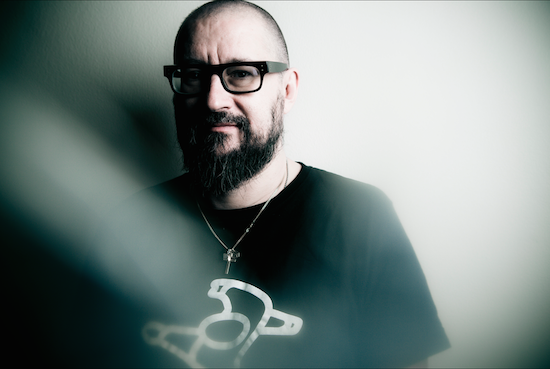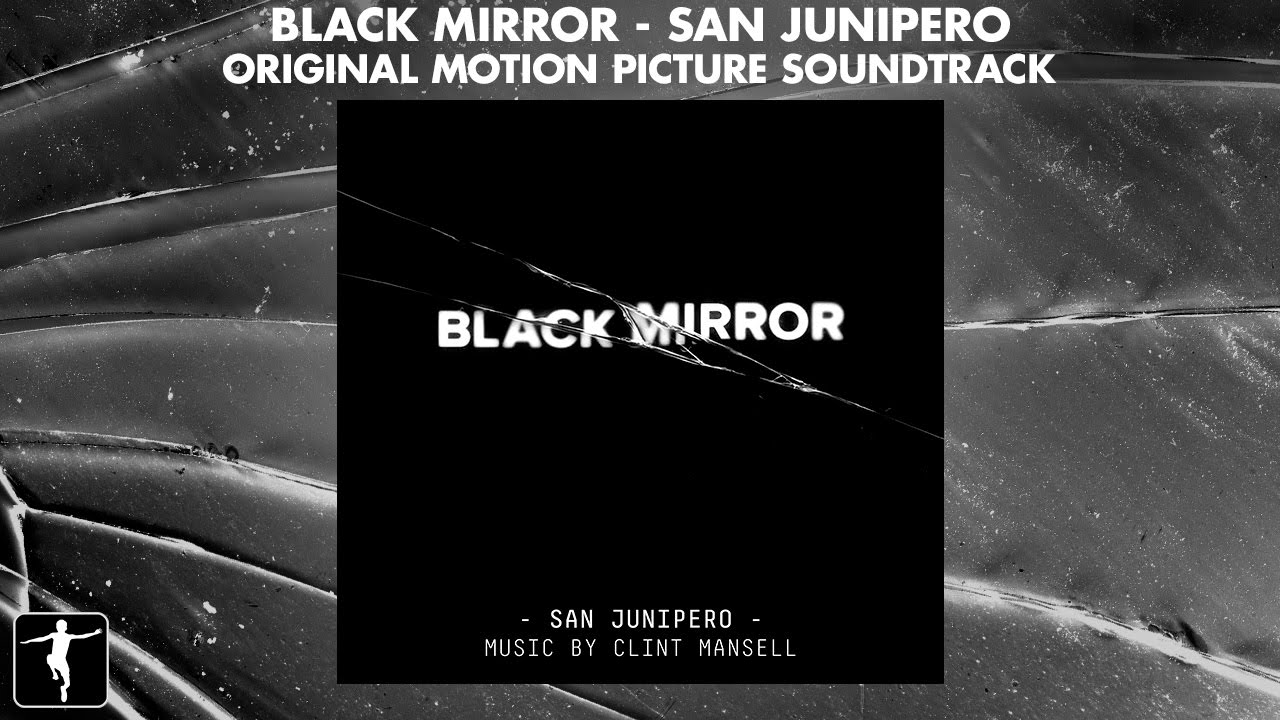Clint Mansell has become known as somewhat ‘Hollywood royalty’ since his evolution from lead singer of Pop Will Eat Itself to esteemed film and TV composer. Amongst his best known works might be Requiem For A Dream, Black Swan, The Fountain and Filth, all of which showcase his taste for slightly twisted, dark and psychologically driven work.
With Mansell’s ability to capture such complex emotion in his scores, he was recruited to work on sci-fi dystopian television show Black Mirror for their ‘San Junipero’ episode—an episode that accrued a cult fanbase as possibly the most heart-wrenching of the series.
Known for its (spoiler alert) debatable happy ending and controversial love affair, the episode, which premiered last year, is given further heft by Mansell’s synth-orchestral, futuristic and pensive score.
In anticipation of the score’s release on Lakeshore Records and Invada Records, we chatted with Mansell about working in television and film, conspiracy theories and finding similarities between his own life and that of the characters.
A lot of people say this episode is the most critically acclaimed of the series, and definitely by having a happy ending it’s fairly different. Why do you think people were particularly attracted to this episode?
Clint Mansell: I think it’s a really great bit of writing and it’s a great story. The way it unfolds is sort of surprising without it feeling forced upon you. I think the fact that yes, it has a happy ending, but also the fact that it’s a same sex affair and relationship and that the ages are quite different—it just has so much going for it. The performances were really good and the writer and director sort of pushed me into a slightly different area than I usually work in, sort of like John Hughes movies, which is as far from my work as you can generally get. I think the director Owen Harris came to me and needed something completely different than what I’m normally used to, and, though I don’t think I went entirely John Hughes, he sort of pulled me in that direction.
I suppose something that you could say is different about this project is that you have to lead in and out of pop music from multiple different eras, whether it be ’80s club music or ‘Heaven Is A Place On Earth’ at the end. Was that particularly challenging or is that something that influenced your work?
CM: You get to do a fair bit of that in film, really, but it just depends on the piece. I did Filth which has quite a lot of songs in it and getting in and out of those is basically the same as trying to blend from one cue to another. You just have to blend with the incoming or the outgoing and I try to make it all a bit cohesive. Maybe if you listen to it all together you can actually still pick up the story. You don’t want to pop your audience out of the story, unless you specifically want to do that for some reason, but not intentionally.
The songs were already in place, obviously the big one being Belinda Carlisle, but then the scene where they first dance together but Yorkie runs off—there’s a moment there where the song fades out and the score fades in and to bring that together it also had to be very choreographed with the source music. But that song was already in place so I didn’t have to worry about it changing, and that helped me work with it.
The score for Black Swan worked very directly with Tchaikovsky’s ‘Swan Lake’. Was there anything for ‘San Junipero’ that you drew on specifically for inspiration?
CM: It was quite a difficult time for given me given the subject matter because I was still grieving over the death of my girlfriend that happened just over a year before I was working on it. That undoubtedly shapes your output and the things that you hear, and I partly heard it differently because of my emotional state. Those things combined with the John Hughes-influenced, calm electronic score gave me inspiration. The characters are going through similar emotions to what I had been through. It took us a while to find the music that plays on the beach, because even though I had that piece written quite early it floated around as whatever stage I had it at and whatever the stage the rest of the score was at it wasn’t all sitting together right. With some pushing and pulling it eventually all came together. I’m fortunate in the way that lots of people I’m working with will give me broad strokes to allow me time to experiment and find what I’m looking for. So I guess all of that bundled together was my inspiration.
In writing music that does drive the emotion of the piece so much, do you normally find yourself associating with a specific character or moment to get that tone across?
CM: It’s a process that for me isn’t very analytical. I really like to absorb the project and watch it and work on the music a lot and just get the feel for it until eventually a moment comes where I know I’ve got it. A lot of it is trial and error. Some days a piece of music doesn’t work and then the next day a different piece doesn’t work and then the third day another piece of music finally says something and works with the picture and suddenly casts a light on all the other stuff you’ve done—probably because my mind is getting to understand it and the piece is educating me. I always feel like the score is in there already somewhere and I just have to channel it and accent it. The show and the storyboard will let you know what’s working for it and what isn’t if you listen to it.
Black Mirror is all about new technology, and perhaps even the horrors of new technology in most of the episodes. What do you make of the shift towards computer and technology-based music? How does technology affect your work?
CM: Well, it would be in pretty poor form for me to not be a big supporter of tech and computers because that is how I do my work and how I got involved. The advancement and the affordability of tech gear has made a level playing field where you can now have access to ideas reasonably and then it just comes down to extracting those ideas, which is great. As far as music, every project has its own demands and you could have started with this idea of electronic music and it could be rejected and it could not be. I’ve come into a lot of films with an arsenal of ideas that might intellectually make sense but then when you put it against the picture it just doesn’t work for whatever reason—the way it’s shot and edited now just needs something else whether that’s orchestral or electronic or soundscape or just silence.
So I suppose you have a more optimistic view of technology than most of the show has?
CM: I think technology is fantastic but maybe it’s just developed too fast for us in real world applications. By the same token the fact that a guy can get a laptop and make music that can be put straight into a TV show I suppose shows a disparity when you’re somebody who has gone to college and learned all this stuff. So if you apply that to the entire world than certainly computers have changed everything. But I’d be a hypocrite if I complained about it because it’s given me a career. I’m part of the problem is what I’m saying!
What’s coming up for you next?
I’ve been in a long period of thinking about the future like I’m sure a lot of people are at the moment, and honestly I don’t know. I’ve enjoyed films and TV shows and stuff, and the world is definitely changing and this process with it. I’d love to do something in live theatre or something like that—something that’s a little bit different. You’re always looking for something in life that’s going to be a new challenge or something that’s going to bring something different to ask of you. Hopefully I can just find projects, whatever they might be, that inspire me to do some good work.
Black Mirror: San Junipero will be available on LP, Picture Disc, and CD on August 4 for North & South America via Lakeshore Records and July 21 via Invada Records for Europe and the rest of the world.



